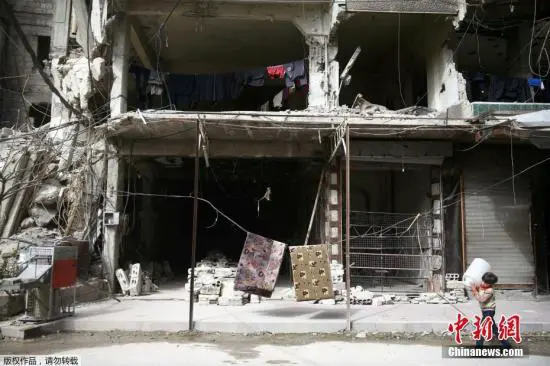Students were seen attending schools in Maungtaw and Buthidaung townships in Myanmar's northern Rakhine state over the past week after a spate of violence committed by the Arakan Rohingya Salvation Army (ARSA) extremist terrorists since Aug. 25.
According to the state education department based in Sittway, the capital of Rakhine state, up to 21 primary, middle and high schools in Maungtaw and Buthidaung have resumed their classes.
A high school headmaster claimed that academic life has been fully restored in Maungtaw. However, schools in villages are still closed due to security situation.
About 3,000 students who fled from the two townships to Sittway due to ARSA terrorist attacks, are continuing pursuit of their education in the refugee camps in Sittway.
Meanwhile, the Myanmar government has been seeking assistance from the international community for the resettlement of displaced ethnic people.
A day after her Sept. 19 speech on the country's national reconciliation and peace efforts in Nay Pyi Taw, State Counselor Aung San Suu Kyi held a meeting with the Implementation Committee of Recommendations on Rakhine state.
Aung San Suu Kyi noted that the Myanmar authorities are also planning to form a committee to implement national verification process, the rehabilitation, resettlement and long-term development programs for the people affected over the past years.
The verification process, based on principles to which both Myanmar and Bangladesh agreed in 1993, will be carried out at Taungpyo Latwe village for those who return by road and at Naguya village for those who come back by waterways.
Under the current plan, the verified refugees will be settled at Dargyizar village, social welfare officials said.
Aung San Suu Kyi called on the international community to cooperate for constructively tackling the issue of northern Rakhine state, voicing government's pledge to implement the recommendations by the Advisory Commission led by former UN Secretary-General Kofi Annan.
She highlighted the government's social economic development in Rakhine, saying the Rakhine state's socio-economic development plan 2017-2021 has been drafted to boost regional development in various sectors including infrastructure and electrification as well as creation of new job opportunities for local people through private-public partnership.
She stressed that all people in the Rakhine state have access to education and healthcare services without discrimination.
She also said the government is trying to promote inter- communal religious harmony by engaging interfaced groups.
The local people in the affected areas due to the recent attacks are being provided with humanitarian aid without any discrimination, government officials said.
They added the authorities are increasing more humanitarian aid to reach all areas in Rakhine state with the help of donor countries and organizations including China, the United States, Britain, Denmark and the Association of Southeast Asian Nations (ASEAN).
The government also said that it will redevelop conflict-hit region in northern Rakhine state under the country's Natural Disaster Management Law.
"After the damage and loss caused by the Arakan Rohingya Salvation Army extremist terrorists, redevelopment of Maungtaw region will be implemented according to Natural Disaster Management Law," said Minister of Social Welfare, Relief and Resettlement Win Myat Aye.
He stressed that burnt lands due to terrorist attacks have become government-managed lands which are covered by the Natural Disaster Management Law enacted in 2013 and the Management Committee was formed with Second Vice President U Henry Van Thio as chairman.
(ASIA PACIFIC DAILY)
 简体中文
简体中文

